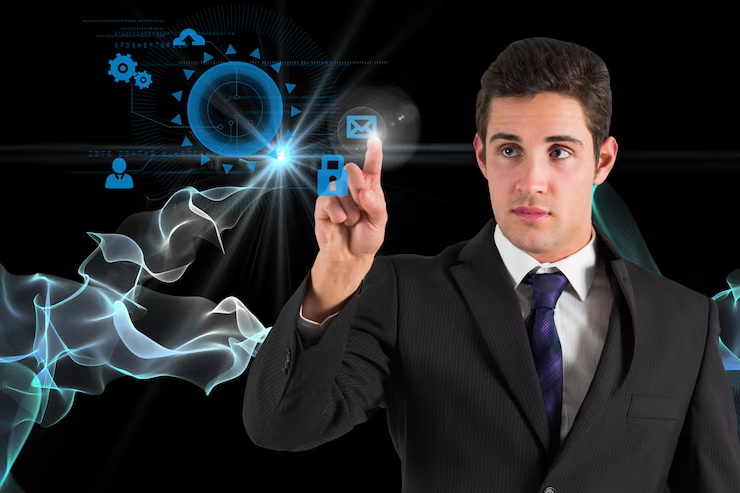Welcome to MotionTechno, your ultimate tech update hub! In a world where technology evolves at breakneck speed, staying informed is essential. From the latest gadgets to groundbreaking innovations, here’s your daily dose of technology updates that you can’t miss.
The Rise of AI in Everyday Life
In recent years, artificial intelligence (AI) has moved from being a futuristic concept to a pivotal part of our daily lives. From Siri and Alexa helping with daily tasks to more advanced applications in industries like healthcare and finance, AI is transforming how we live, work, and interact with technology.
Some key areas where AI is making an impact include:
1. Healthcare
AI-driven technologies are being used for everything from patient diagnostics to personalized medicine. AI systems are helping doctors with early disease detection, offering treatment recommendations, and even managing hospital inventories efficiently.
2. Finance
In the finance sector, AI algorithms are optimizing trading strategies, fraud detection, and customer service. Chatbots are handling customer inquiries 24/7, and machine learning models are making predictions based on market trends.
3. Autonomous Vehicles
The race for self-driving cars is on, with companies like Tesla and Waymo leading the way. These vehicles rely heavily on AI and machine learning to make decisions in real-time, ensuring safer and more efficient travel.
The Evolution of 5G and Its Potential
The 5G rollout has begun, and with it comes the promise of faster internet speeds, lower latency, and more reliable connectivity. But 5G’s potential goes beyond just faster downloads. It’s expected to revolutionize sectors like:
- Telemedicine: Real-time video consultations will become smoother and more interactive.
- Smart Cities: The infrastructure of cities will become interconnected, making everything from public transportation to waste management more efficient.
- Gaming: With reduced lag times, cloud gaming will be a seamless experience, allowing users to play high-quality games on any device.
Virtual Reality and Augmented Reality: A New Frontier
Virtual reality (VR) and augmented reality (AR) are no longer just for gaming. These immersive technologies are quickly becoming a game-changer in various industries:
1. Education
VR and AR are providing interactive learning experiences. Students can now “travel” through history or visit the solar system, all from the comfort of their classrooms.
2. Retail
Retailers are offering AR-enabled shopping experiences where customers can visualize how products, like furniture or clothing, will look in real life before making a purchase.
3. Training and Simulation
Industries like aviation, healthcare, and military training use VR simulations to prepare personnel for real-world scenarios in a controlled, safe environment.
The Impact of Blockchain Beyond Cryptocurrency
While blockchain is most commonly associated with cryptocurrencies like Bitcoin and Ethereum, its potential applications go far beyond digital currencies. The technology is transforming industries by offering secure, decentralized solutions.
1. Supply Chain Management
Blockchain ensures transparency and traceability throughout the supply chain. From tracking goods to verifying product authenticity, blockchain is streamlining global logistics.
2. Voting Systems
Blockchain offers a secure and transparent method for voting, which can potentially reduce election fraud and increase voter trust.
3. Smart Contracts
Smart contracts are self-executing contracts with the terms of the agreement directly written into code. These contracts remove intermediaries and reduce costs, making transactions faster and more efficient.
The Future of Smart Homes
The concept of a smart home is no longer just a luxury but a practical and affordable reality for many. With smart devices ranging from thermostats to security cameras, your home can now be controlled remotely with just a smartphone.
Key trends in the smart home ecosystem include:
- AI Integration: AI-powered assistants like Google Assistant and Amazon Alexa make it easier to manage your home with simple voice commands.
- IoT (Internet of Things): The Internet of Things connects devices, making them smarter and capable of working together to improve efficiency.
- Energy Efficiency: Smart thermostats and energy-efficient appliances help reduce electricity usage, ultimately saving you money and benefiting the environment.
FAQs
Q1: What is the impact of AI on daily life?
A: AI has greatly impacted daily life by automating tasks, providing personalized recommendations, and improving efficiency in various industries like healthcare, finance, and entertainment.
Q2: How will 5G affect the way we use the internet?
A: 5G will offer faster internet speeds, lower latency, and better connectivity, making applications like gaming, streaming, and remote work smoother and more efficient.
Q3: What are the benefits of blockchain in supply chain management?
A: Blockchain offers transparency, security, and traceability, ensuring that products can be tracked through each step of the supply chain, reducing fraud and improving efficiency.
Q4: Can VR and AR change how we learn?
A: Yes! VR and AR offer immersive, interactive learning experiences that make education more engaging by allowing students to experience lessons firsthand.
Q5: What are the advantages of a smart home?
A: Smart homes offer convenience, energy efficiency, and enhanced security. Devices can be controlled remotely, improving comfort and reducing costs.
Conclusion
The future is now, and technology is evolving rapidly, shaping every aspect of our lives. From AI to blockchain, 5G to smart homes, the innovations we’re seeing today are just the beginning of what’s to come. By staying informed and embracing these advancements, we can navigate the changing landscape and make the most of the opportunities they present.


